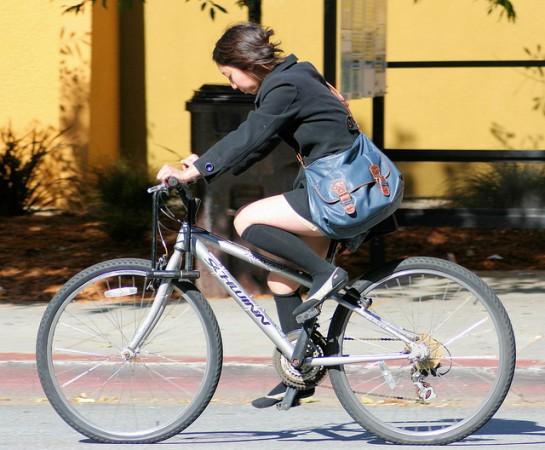
Put those car keys away and start walking. A new study has found unlimited mental health benefits involved with walking or cycling to the work.
Overall well-being of people considerably improved after they changed their mode of travel to the workplace from self-driving to walking or cycling. The physical activity before office helped improve concentration and lowered stress.
Additionally, travelling by public transport was also involved with better mental health than driving to the office.
"One surprising finding was that commuters reported feeling better when travelling by public transport, compared to driving," lead researcher of the study Adam Martin, from the Norwich Medical School in the University of East Anglia in UK, said in a news release. "You might think that things like disruption to services or crowds of commuters might have been a cause of considerable stress. But as buses or trains also give people time to relax, read, socialise, and there is usually an associated walk to the bus stop or railway station, it appears to cheer people up."
The study used 18 years of data to analyse influence of mode of transport on psychological health of 18,000 commuters, aged between 18 and 65 in Britain. It also covered factors that determine mental health including sleep quality, ability to face challenges, unhappiness and worthlessness. Other factors that influence wellbeing like income, children, changes in job, residence or relationships were also taken into consideration.
The study also found a direct link between the total time people spent on commuting and mental health. While long walks enhanced psychological health, long drives can leave a negative impact, the authors said. "Our study shows that the longer people spend commuting in cars, the worse their psychological wellbeing. And correspondingly, people feel better when they have a longer walk to work," Martin said.
A team of Italian researchers reported in February that people prefer car over other modes of transport like bus or metro even though it was not the best available option- either in terms of saving money or time. The paper published in the Transport Policy termed the popular behaviour as the "car effect."
Previous studies have shown that cycling and walking to school improved concentration levels in students. In a 2012 study, children who were driven to the school or used a public transport had less ability to concentrate in the classroom than those who walked.
The new study reported in Preventive Medicine; however, disputes a report compiled by the Office of National Statistics early this year. People in the study, who commuted daily had higher levels of anxiety and were less happy than non-commuters. "The results suggest that although physical well-being may be enhanced by cycling and walking, getting exercise in this way on the daily commute may not necessarily have the stress-relieving qualities we would expect," the report said, according to The Daily Mail.









